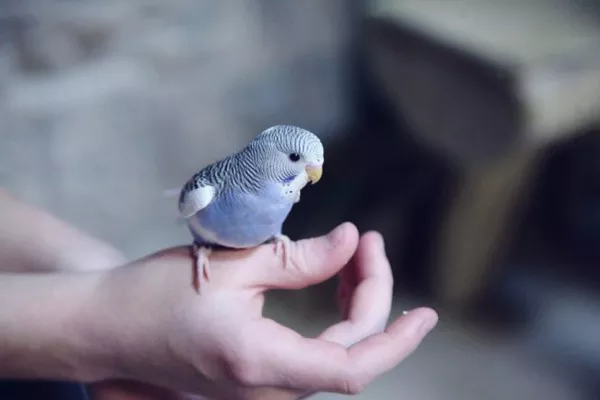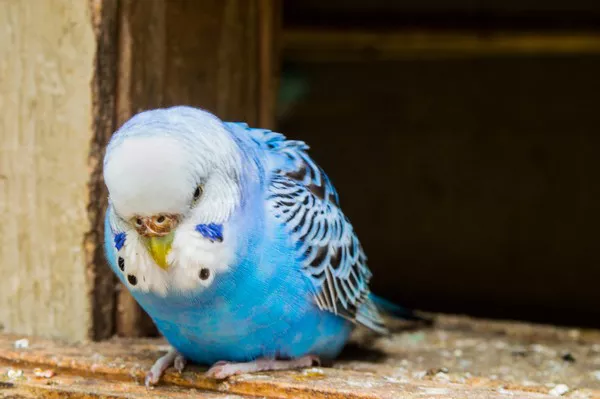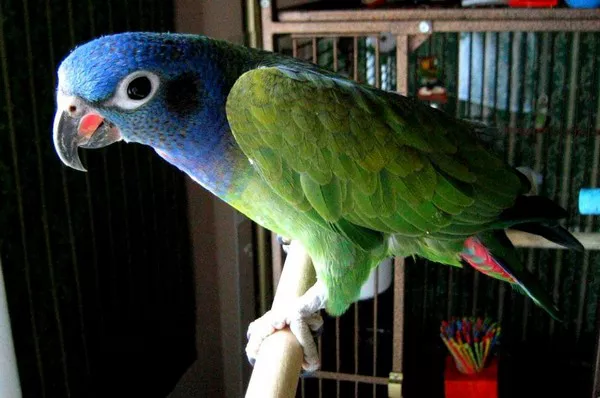When it comes to choosing a pet, sun conures are a top pick for many bird enthusiasts. These vibrant little parrots are not just known for their striking plumage, which ranges from bright yellow to a fiery orange with splashes of green, but also for their charming personalities. They’re playful, affectionate, and sometimes a bit mischievous. But one important question remains for potential owners: What do sun conures like to eat? Understanding their dietary preferences is crucial for keeping your conure healthy and happy. In this article, we will explore their natural diets, preferred foods, and some fun tips for feeding these delightful birds.
Understanding the Sun Conure’s Natural Diet
To answer the burning question of what sun conures like to eat, we must first understand their natural habitat and feeding behaviors. Sun conures (also known as sun parakeets) are native to the tropical forests of South America, particularly in regions like Brazil and Paraguay. In the wild, these colorful birds feast on a diverse range of foods. Their diet primarily consists of:
Fruits: Conures love juicy fruits like papaya, mango, and guava. They are drawn to sweet and tangy flavors that provide essential vitamins.
Seeds and Nuts: In the wild, sun conures munch on a variety of seeds and nuts, including sunflower seeds, pumpkin seeds, and walnuts. These provide necessary fats and proteins.
Vegetables: Leafy greens, carrots, and bell peppers are often part of their diet. Birds love to explore different textures and tastes.
Flowers and Blossoms: Some species of flowers are not just beautiful; they are also a delicacy for conures. Dandelions and hibiscus can be tasty treats for your feathered friend.
Understanding this natural diet helps pet owners create a well-rounded menu for their sun conures. Now, let’s dive deeper into the specific food items they enjoy, along with some recommendations for a healthy diet.
The Essentials: Seeds and Pellets
The Seed Spectrum
When you first bring home a sun conure, you might be tempted to offer a mix of seeds. While seeds are tasty and highly palatable, they should not be the only food in your bird’s diet. Sun conures have a penchant for:
Sunflower Seeds: A classic favorite! Sunflower seeds are high in fat and calories. Use them sparingly as treats rather than the main meal.
Safflower Seeds: These seeds are a bit healthier than sunflower seeds and can be a great addition to their diet.
Pumpkin Seeds: Nutritious and delicious, pumpkin seeds are also a great snack for your conure. They are rich in magnesium and protein.
Pellets: The Balanced Option
Pellets are a convenient and balanced dietary option for sun conures. Many reputable brands design bird pellets specifically to meet the nutritional needs of parrots. They provide essential vitamins and minerals that seeds may lack.
When choosing pellets, look for ones that:
- Have no artificial colors or preservatives.
- Include a mix of ingredients like grains, vegetables, and fruits.
- Are specifically formulated for medium-sized parrots.
Offering pellets as the staple of your sun conure’s diet ensures they receive the necessary nutrition to thrive. Gradually introduce pellets alongside their favorite seeds to create a balanced diet.
Fruits: The Sweet Treats
A Fruitful Feast
Fruit is often the most exciting part of a sun conure’s diet. These birds are drawn to bright colors and enticing scents, making fruits an instant hit. However, not all fruits are created equal, and some are safer than others. Here’s a list of fruits that sun conures love:
Apples: Slice them up and remove the seeds. Apples are a good source of fiber and hydration.
Berries: Strawberries, blueberries, and raspberries provide antioxidants and are easy for conures to eat.
Bananas: Soft and sweet, bananas are a delightful treat, but they should be given in moderation due to high sugar content.
Mangoes: Juicy and delicious, mangoes are packed with vitamins A and C.
Pineapple: This tropical fruit is refreshing and can be a great treat.
Avoiding Toxic Fruits
While fruits can be a fantastic addition, some fruits are toxic to birds. Avoid feeding sun conures:
Avocado: Highly toxic and can cause respiratory distress in birds.
Cherries: The pits are dangerous and should never be fed to birds.
Citrus Fruits: While small amounts of citrus are generally okay, excessive amounts can lead to digestive issues.
Vegetables: Crunchy and Colorful
The Veggie Variety
Vegetables are another essential part of a sun conure’s diet. Just like fruits, they should be offered in various forms to keep your feathered friend interested. Here are some favorites:
Carrots: Crunchy and sweet, carrots are high in beta-carotene, which is essential for vision and immune function.
Leafy Greens: Spinach, kale, and Swiss chard are great choices. They provide vital nutrients and fiber.
Bell Peppers: Available in various colors, bell peppers are rich in vitamins and can be fed raw or cooked.
Broccoli: This green veggie is a great source of vitamins C and K and can be offered raw or steamed.
Cooking vs. Raw
While many vegetables can be fed raw, some conures may prefer them cooked. Steaming vegetables slightly can make them easier for your bird to eat, enhancing their palatability. Just avoid adding salt or seasoning, as birds have very different dietary needs than humans.
Treats: The Extra Goodies
Fun Snacks for Happy Birds
In addition to their staple diet, sun conures enjoy occasional treats to keep things exciting. These should be offered sparingly and can include:
Nuts: Almonds, walnuts, and pistachios are delicious snacks. Offer them in moderation due to high-fat content.
Dried Fruits: Unsweetened dried fruits like apricots or cranberries can make a tasty treat.
Cooked Grains: Whole grains like quinoa or brown rice can be a nutritious addition to their diet.
Commercial Bird Treats: Many companies offer specialized treats formulated for parrots. Look for options that are low in sugar and additives.
Hydration: Water Matters
Water is the unsung hero of pet care. Sun conures need access to clean, fresh water at all times. Change the water daily to prevent contamination, and clean the bowl regularly. Some birds enjoy bathing in their water bowl, so it’s essential to keep it clean and free of debris.
Fun Fact: The Importance of Hydration
Did you know that dehydration can lead to serious health issues in birds? Unlike humans, birds cannot simply gulp down water when they feel thirsty. They often drink small amounts throughout the day. Ensuring your sun conure has access to water at all times will help keep them healthy and happy.
Feeding Routine: Timing Is Everything
Establishing a feeding routine helps sun conures feel secure and balanced. Here are some tips for creating an effective feeding schedule:
Consistency is Key: Feed your conure at the same time each day to create a sense of routine.
Limit Treats: While treats are fun, too many can lead to obesity and health problems. Stick to a rule of offering treats only once or twice a week.
Observe Portion Sizes: Avoid overfeeding. A good rule of thumb is to offer enough food for your conure to eat within a couple of hours.
The Importance of Monitoring Diet
Regularly check what your sun conure eats. If you notice your bird is not finishing its food, it may be a sign of illness or disinterest. Keeping an eye on their eating habits will help you catch any health issues early on.
Common Mistakes: What to Avoid
Feeding the Wrong Foods
Even with the best intentions, some pet owners unknowingly feed their sun conures harmful foods. Here are some common mistakes to watch out for:
Overfeeding Seeds: While seeds are popular, they are high in fat. They should not make up more than 25% of your bird’s diet.
Neglecting Variety: A diet lacking in variety can lead to nutritional deficiencies. Mix up their food to keep them healthy.
Ignoring Freshness: Old or moldy food can make birds sick. Always provide fresh produce and seeds.
See Also: Why Do Sun Conures Shake Their Wings?
Avoiding Toxic Foods
Certain foods are toxic to birds. Be cautious of:
Chocolate: This beloved treat is deadly to birds.
Caffeine: Coffee and tea can cause serious health problems.
Processed Foods: Avoid feeding your sun conure any human junk food. These are often high in sugar, salt, and additives.
The Joy of Feeding: Building a Bond
The Social Aspect of Feeding
Feeding your sun conure is more than just providing food; it’s a bonding experience. Many bird owners find joy in sharing mealtime with their pets. Here are some ways to make feeding a fun activity:
Hand-Feeding: Offer treats from your hand. This builds trust and helps your bird associate you with positive experiences.
Interactive Feeding: Use foraging toys to make mealtime engaging. These toys can hold treats or seeds, encouraging your conure to work for their food.
Meal Prep Together: Let your conure watch as you prepare their meals. They’ll be intrigued by the sounds and sights of fresh food being chopped and served.
Learning Their Preferences
Every sun conure has unique tastes. Some may prefer fruits over vegetables, while others may have a special fondness for a particular nut. Experiment with different foods and observe your bird’s reactions. Over time, you’ll learn their preferences, allowing you to customize their diet to suit their tastes.
Fun Facts about Sun Conures and Their Eating Habits
Clowning Around: Sun conures are known for their playful and silly behavior, often making mealtime entertaining. They may toss their food around or perform acrobatics to grab your attention.
Mimicry at Its Best: These birds are great mimics. They may mimic the sound of crunching when eating their favorite snacks!
Community Diners: In the wild, sun conures often feed in flocks, making mealtime a social event. They enjoy the company of other birds, and having a companion can make eating even more fun.
Loving Variety: Like humans, sun conures can get bored with their food. Offering a rotating selection of fruits, vegetables, and treats keeps their diet exciting.
Conclusion
Feeding a sun conure is an essential part of being a responsible bird owner. These vibrant birds thrive on a varied diet that includes pellets, fruits, vegetables, seeds, and occasional treats. Understanding their natural dietary preferences helps ensure your feathered friend stays healthy and happy.
By providing a balanced and nutritious diet, you contribute to your sun conure’s overall well-being. Remember to avoid harmful foods, establish a feeding routine, and engage with your bird during mealtime. With love and care, your sun conure will not only thrive but also become a joyful companion in your home.
As you embark on this colorful culinary journey, remember that the key to a happy sun conure lies not just in what they eat, but in the love and attention you provide them along the way. Happy feeding!
Related Topics:



























